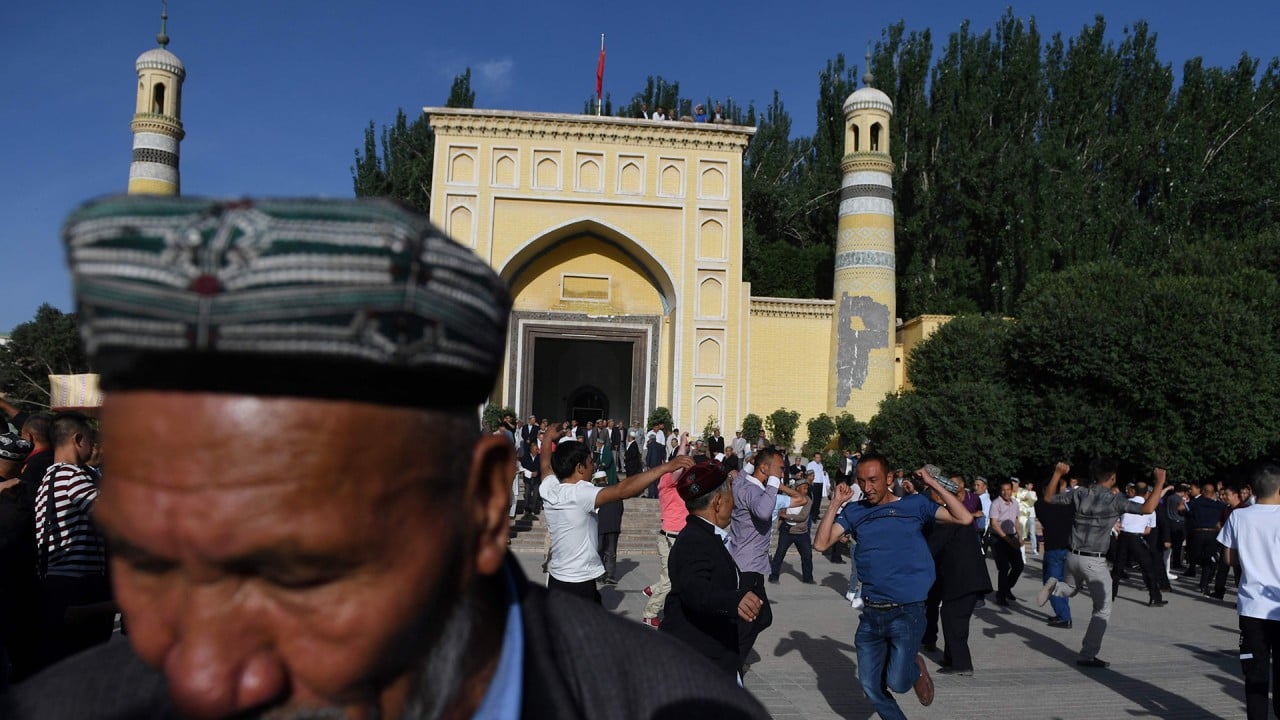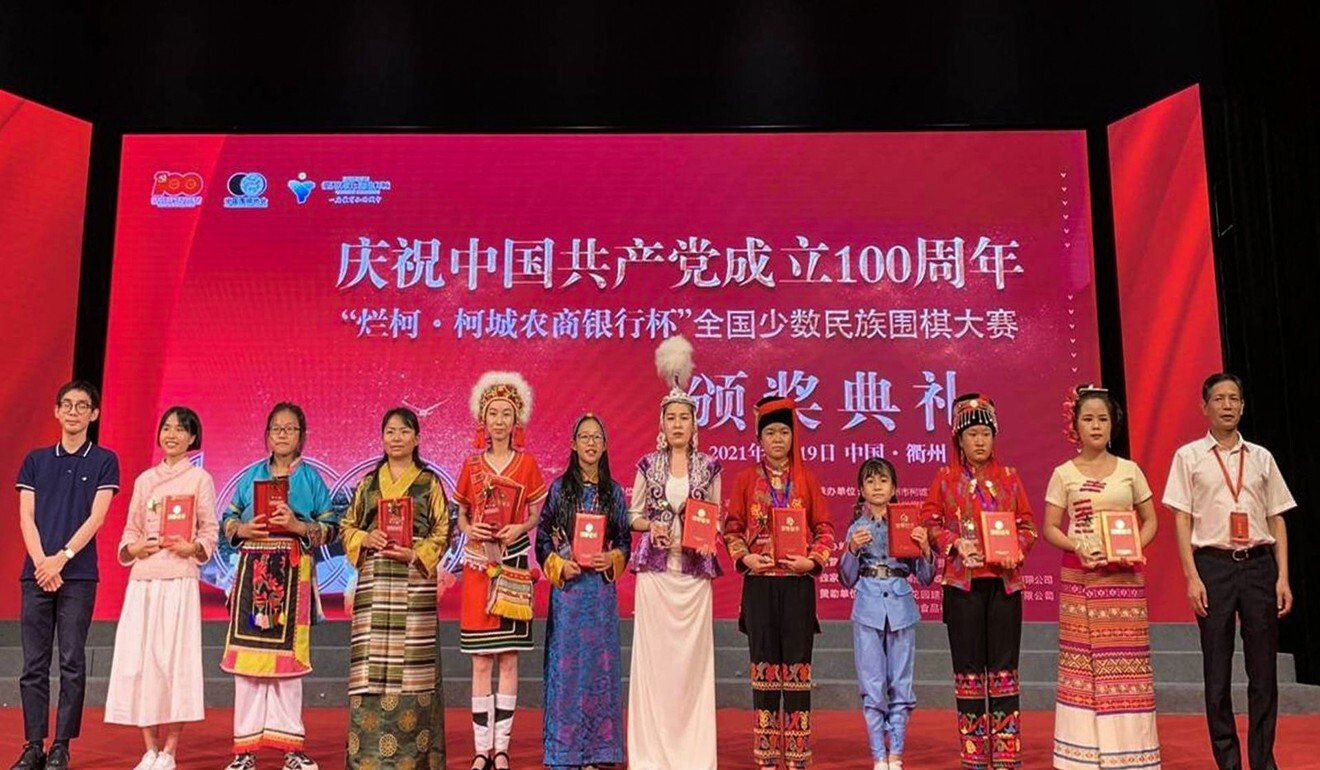
Chinese Hui Muslims trigger storm by wearing traditional dress to event to promote ethnic unity
- Pictures of women wearing headscarves at a Go tournament triggers investigation by Ningxia sports authority amid claims of religious extremism
- The competition featured representatives from all China’s minority groups, many of whom wore traditional costumes
A competition designed to promote unity among China’s different ethnic groups has become embroiled in controversy after some of the competitors wore traditional Islamic clothing to the event.
The Go tournament – a traditional Chinese board game also known as Weiqi – in Quzhou, a city in Zhejiang province, was designed to promote “participation and communication” among the members of China’s 56 designated ethnic minority groups.
The competition, organised by the Chinese Weiqi Association and various other groups, also featured a relay in which competitors took it in turns to move a piece as a symbol of cooperation between all the different ethnic groups.
Many competitors wore traditional clothing to the event last weekend, including female members of the Muslim Hui minority from Ningxia, who wore headscarves.

01:55
Xinjiang’s vanishing mosques reflect growing pressure on China’s Uygur Muslims
One of the competitors, Wang Jingchu, won both the female competition and a prize for the best traditional outfit.
But the headscarves Wang and other members of the Ningxia delegation wore triggered online complaints about Islamic extremism and prompted the state-backed regional sports federation to order an investigation.
The secretariat of the Ningxia Sports Federation issued a statement on Tuesday, saying it had interviewed the president and general secretary of the regional Weiqi association and ordered them to carry out an in-depth review into “the whole process and relevant details” of the Hui players’ clothing.
China puts Han official in charge of ethnic minority affairs
Two days later, the Ningxia Weiqi Association issued a defence of the competitors’ clothing saying: “It’s extremely normal for Hui males to wear white caps and females to wear headscarves.
“These dresses comply with our local Hui traditions and have nothing to do with extremist religious groups.
“Please respect our Hui people’s self-esteem and beliefs, and don’t link our normal dress and lifestyle with extremist groups, which is irresponsible and is in essence a humiliation and defamation.”
The Chinese-speaking Hui people are Muslims who mainly live in the northwest of the country, and Ningxia is their designated autonomous region.

But this defence failed to sway some critics, including Xi Wuyi, a Marxist scholar at the state-backed Chinese Academy of Social Sciences and an outspoken critic of rising Islamic influence in China.
Xi wrote on Weibo: “Is the Ningxia Weiqi Association qualified to say that hijabs are the traditional dresses for Hui people? Are hijabs the best dresses?”
She also questioned the idea of holding the competition for ethnic minorities. “Is creating a competition that advocates diversity good for nurturing a shared belief about Chinese identity?” she asked.
Echoing Wu’s comments, one Weibo user based in Inner Mongolia said, “How come this hijab dress that’s linked to religious extremism has been awarded the best traditional dress and promotes unity among ethnic minorities?”
Opportunity knocks for Xinjiang’s ‘fourteenth ethnicity’, but at a price
This includes a push to “Sinicise” religion that has prompted the removal of Arabic architectural features such as domes and minarets from mosques to be replaced with traditional Chinese features.
–

